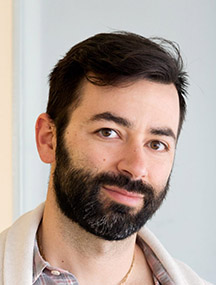Harvard and MIT researchers discover that different states of gene expression affect how cancer cells respond to precision medicine treatments
Cancer cells appear to have varying states in which different sets of genes are expressed. As a result of this finding, researchers want to answer the question of how cell states influence what drugs will be effective for those cells given that specific point in time.
Much of precision medicine relies on identifying differences in the genetic sequences of specific individuals, then providing treatments based on their unique genetic profile. Not considered, however, is that only certain genes are active in specific cells at any given point in time.
Led by researchers from Massachusetts Institute of Technology (MIT) and Harvard University, the new study on cell states focused on RNA expression in pancreatic cancer. RNA expression is the way in which cells copy specific genes and produce proteins based on the genetic sequences.
Microenvironment Central Component of New Cell State Research

The core findings of this single-cell RNA-sequencing study, published in the December 2021 issue of Cell, were that there were three distinct cell states for the pancreatic cancer cells being studied. In addition, each cell state was influenced by the tumor’s microenvironment. The microenvironment refers to the environment specific to the immediate area in which the cancer cells being studied were growing.
“What we show in this paper is that cancer cell state is plastic in response to the microenvironment and has a dramatic impact on drug sensitivity,” said Alex Shalek, PhD, in an MIT statement from December 2021. “This opens new frontiers for thinking about drug development and how to select drugs for individual patients.”
Shalek is the Pfizer-Laubach Career Development Associate Professor at MIT, as well as a Core Member of the Institute for Medical Engineering and Science (IMES), an Associate Professor of Chemistry, and an Extramural Member of The Koch Institute for Integrative Cancer Research.
While researching only the genetic sequence of cancer cells can provide very useful precision medicine information, understanding how that genetic sequence is actually being expressed at a moment in time adds additional information. This provides an additional layer to precision medicine that can be used to target therapeutics.
State-Specific Sensitivities Potentially Critical to Avoiding Drug Resistance
“There are plenty of situations where the genetics are incredibly important, where you can develop these very precise drugs that target mutations or translocations,” said Andrew Navia, an chemistry PhD candidate at MIT and co-lead author of the study. “But in many instances mutations alone don’t give you an effective way to target cancer cells relative to healthy ones.”
One important finding of this research was that different cell states significantly affected how cancer cells responded to treatments. “When we started looking at drug sensitivity, it became very clear that the same model pushed into a different state would respond very differently to a drug,” Navia explained.
“These state-specific sensitivities become critical as we think about selecting drugs and avoiding resistance. If you don’t know the right state, you could pick the entirely wrong compound and try to target the wrong pathways. If you don’t consider plasticity, the cancer may only respond temporarily until its cells change state,” added Navia.
Referenced to Matched Organoid Models
Another implication of this study was that an increasingly popular method of precision medicine research for cancers may be affected by cell states. Organoids are three-dimensional cultures grown from a specific patient’s cancer cells. Organoids show promise for allowing researchers to study specific cancers outside of patients’ bodies and allow researchers to perform multiple experiments without potentially harming patients.
While organoids are a promising research tool, the microenvironment of organoids can be different from the microenvironment inside the patient’s body, affecting how genes are expressed. “We see the same DNA mutations in the original tumor and its model, but when we start to examine what they look like at the RNA level, we find that they’re very, very different,” Shalek said of organoid-based research.
Ultimately, the researchers view these findings as a next step in precision medicine research. “We’re not erasing decades of understanding cancer as a genetic disease, but we’re certainly saying that we need to much better understand the intersection between genetics and state,” said Peter Winter, PhD, an MIT postdoctoral fellow and study co-author. “Cell state absolutely has ties to the underlying sensitivity of certain models, and therefore patients and to specific drugs.”
Hospital and oncology leaders who are integrating precision medicine into cancer treatments will benefit from staying abreast of emerging research into how cell states and gene expression affects precision medicine treatments. While the Harvard and MIT research is a good first step in understanding these cell states, it will likely spur more research that will have meaningful impacts on the future of precision medicine-based cancer care.
—Caleb Williams
Related Information:
Massachusetts Institute of Technology (MIT)
Microenvironment drives cell state, plasticity, and drug response in pancreatic cancer
Measuring cancer cell state can reveal drug susceptibility
Institute for Medical Engineering and Science
